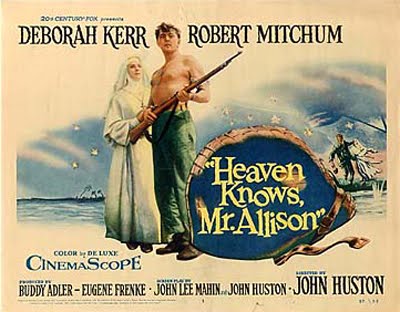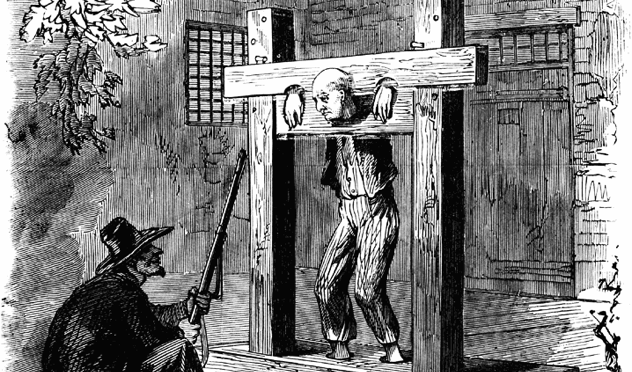This week I watched helplessly as my niece nearly choked to death in my arms, and my sister nearly did the same on the floor.
I’ve had one client make a string of the most unreasonable demands, all of which I have met without complaint and in a timely fashion, despite feeling like death myself.
I have had another client try to charge me three times the amount they were paying me, because they had changed the due date of the piece and failed to inform me they needed it sooner.
I’ve had a permanent migraine.
And, perhaps worst out of all of these things, I did something I didn’t think I’d be having to do for several years to come yet: buried my first friend. By first, I mean it’s the first time I’ve had a friend die. I’ve had relatives die, mostly due to age or terminal illness, but I have never before lost a friend.
Lindsey’s death had already left me reeling. The thought of something happening to my niece left me in a state of blind panic. Add to that physical illness and a gruelling work load and I think I did pretty well just to survive the week. I think anyone would have done well to survive that week, whether they were bipolar or not, whether they were in the midst of a depressive cycle or not. These are difficult things to deal with. Dealing with all of them at once only heightens the difficulty. When you are already teetering on a knife edge, as I have been doing for a while now, any one of these things is enough to send you under.
And it did.
By Friday I felt like a walking corpse. I don’t feel much better today, but I have at least regained the power of thought, something which eluded me on Friday. In hindsight, given how I was feeling, I should not have been trying to work. Despite the amount I had to do, I should have simply said to myself ‘take the day, have a rest, and get your head together’. Me being me, I did not say this, because as often as not taking a day off when feeling like this makes me a lot worse in the long run. So I kept working.
Big mistake.
I said something on Friday which, in hindsight, was foolish, and I can understand why the person I said it to got so I annoyed about it. I realise that it was a stupid thing to say, especially to a client, and that I never should have said it. Hindsight, however, is a remarkable thing. At the time I didn’t see this. At the time I was simply trying to get through the day without falling apart, and I wasn’t thinking ahead enough to have considered that these words could be taken very badly. His reaction shocked me, for while I can understand that what I said may have annoyed him, I found his response as unprofessional as he had found my comment. Turn around is fair play and all that, but it was not only unprofessional, it was unkind.
There is a certain amount I can take, especially when I know I’ve done something or said something out of place. If someone feels the needs to pull me up on it, to tell me it’s out of line, then fine, I’m aware of the fact that I’m not always the best at communicating with people. I also find it helpful when people actually articulate to me what I’ve done wrong, so I can be more mindful in the future. Most bipolar bears will tell you they have trouble communicating, especially when they are at the extreme of one mood or another.
I do not, however, feel this is an excuse. For example, I didn’t say to my client ‘I’m sorry I said that, but I’m bipolar and quite ill at the moment’. The reason for this is very simple: it’s not professional.
Bringing my bipolar into a business relationship is something I simply do not do unless it is absolutely necessary. A lot of my clients are aware of the fact I have bipolar, but only because they have seen or heard of my column, not because I’ve told them. I’ve even discussed it with a few of them, but almost always because they have brought it up, or brought up a related topic. It isn’t easy trying to regulate your mood when you have a mood disorder, yet somehow I now manage to do so—the majority of the time—well enough that I can continue to function in the professional world. This often requires me to bite my tongue and let the other guy ‘win’ the argument, not because I think they’re necessarily right, but because I know my reaction to the whole situation has been marred by my condition. I’ve usually over reacted, and if I have over reacted, that usually means there should never have been a disagreement in the first place and I should be the one to end it, no matter how crappy that leaves me feeling.
I am the first to admit I have not been at my best this last week. I can apologise for that as much as I like, but at the end of the day it wasn’t my fault. Circumstances have left me mentally and physically exhausted, and when you’re in such a state, you do make mistakes. You forget to keep your business head on every second of the day. You say the wrong thing. It’s unintentional, but it happens.
I didn’t say anything horrendous this week. It was simply an unfortunate turn of phrase which the client took the wrong way. I meant it literally, however they took offense. I can understand why they took offense, and I would probably have been equally offended had our positions been reversed. Once I realised why they were annoyed, I completely understood, I apologised. I did not however say the one thing that was actually true: ‘I would never have said that if I wasn’t bipolar’. By which I mean, were it not for my current mood state, I wouldn’t have said something so easily misinterpreted, something that does, I have to say, come across as being patronising and very annoying. I can well understand why he was so irritated with me. What I can’t understand is what he did next.
He went on his business page on Facebook – his BUSINESS page, I add, not his private page where he talks to all his friends – and repeated what I’d said. Now, he didn’t name me, and for that I am grateful, but he did insight an entire thread on Facebook consisting of numerous people—some of whom I know—to discuss this thing I had said by mistake, because I’ve been having one of the worst weeks imaginable. Naturally they all agreed with him: it was a terrible thing to say, he should tell me to ‘piss off’, he should never work with me again, I was ‘clearly inarticulate’, etc. etc. He said he’d ‘dealt’ with the issue, which is true he did. He got very annoyed with me for a while and said some rather angry things, sent me a link to a book about better communication, and then told me to forget about it.
 He then sent me a link to this thread on Facebook.
He then sent me a link to this thread on Facebook.
Right up until that point, I could deal with his reaction. I’d said something that had annoyed him and he’s reacted accordingly. Granted, in the world of professionalism you shouldn’t do this, even when someone really pisses you off, you should find a way to discuss it calmly, however I myself am not always capable of doing this and I know there are very few people who could say they can manage this 100% of time. Fair enough. I’d said a stupid thing because of my bad week and terrible mood, he’d reacted badly to it because what I’d said had put him in an equally bad mood. He came back to me a while later with the link to this book and told me to forget it. Again, fair enough. As I said, I know I have issues with communication. I’m fine when I’m writing, but conversations are not my strong point. So, although I found it a little patronising, I felt it was justified. And then came the link to the thread.
I didn’t read it on Friday, I’d totally had it by then and spent the rest of the day in bed, mostly crying. I didn’t look at it yesterday as I didn’t want a reminder of that conversation as I was quite sure it would have me, once more, in tears. I looked at it today, and it wasn’t what I expected. I assumed when he sent it that it was a blog post he’d written in the past about effective communication—it’s the sort of thing he’d write about. I was so shocked when I saw this Facebook thread that I have now completely re-evaluated my opinion of him, not only as a person, but also as a professional. There was nothing professional about that thread. It was venting, pure and simple, he had been annoyed by something and had needed to vent, had needed others to justify his annoyance and tell him he was right, and that’s all fine, everyone needs that sometimes, however that is what your FRIENDS are for, not your business acquaintances. This conversation should have taken place on his personal page, not his business page, and he sure as shit should not have made me privy to it.
Why?
Because it was cruel. The things written on this thread were aimed directly at me and they were very unkind. I can forgive the people who said them, because they don’t (for the most part) know me, and even the ones who do didn’t know he was talking about me.
I wonder when he sent that link, in the midst of his annoyance, his anger, his outrage at what I’d said, if he stopped to think just how upsetting it would be for me to read that thread. If it occurred to him that it was completely unprofessional of him to have had that kind of conversation on his business page, and then direct me right to it. And I find myself realising something quite profound. Those of us who suffer through the horrors of conditions like bipolar, and actively monitor our condition through MEDs, therapy etc, are in general far better at dealing with situations like this than the average Joe. Our conditions make our moods unpredictable, unbearable, and at times destructive, yet we are usually able to recognise reasonably quickly when we have said or done something out of place.
 In this case, I apologised the instant I realised I’d said something wrong. With most people I know, that is enough for them—yes they’re annoyed, but once they realise you didn’t intend something the way it was taken, they accept the apology, they calm down. They get their own mood under control. They may later bitch about it to their friends, but that’s okay, that’s what friends are there for, and they’re perfectly entitled to do that. What astonished me in this instance was the fact he made the whole thing so public. I felt like I’d had a good hard flogging, in the town square, while shackled by the neck and wrists in the stocks, with the locals through rotting vegetables at me.
In this case, I apologised the instant I realised I’d said something wrong. With most people I know, that is enough for them—yes they’re annoyed, but once they realise you didn’t intend something the way it was taken, they accept the apology, they calm down. They get their own mood under control. They may later bitch about it to their friends, but that’s okay, that’s what friends are there for, and they’re perfectly entitled to do that. What astonished me in this instance was the fact he made the whole thing so public. I felt like I’d had a good hard flogging, in the town square, while shackled by the neck and wrists in the stocks, with the locals through rotting vegetables at me.
If I reacted like he did, people would tell me to calm down, to do some deep breathing. They’d ask if I was feeling okay, how was my mood, was I depressed. They might even ask if I’d taken my MEDs properly. They would—perhaps naturally—assume that the over reaction was the result of my bipolar. When a person doesn’t have a condition like bipolar however, I wonder what people make of them acting in this manner. I personally found it extremely cruel. I’m not ashamed to say it made me cry again, and yes, that could be part of my current state of mind, but I think a lot of people seeing a thread like that, so filled with venom, written all about them, would have felt similarly upset.
Were this person simply a friend, I would have told them they had upset me. Since they are a client, I feel I am obliged to rise above it, to take it on the chin and never mention it again. That is the professional thing to do in this situation. And yet I ask myself, why is it that I must be professional, when he was not? Why is it that the person here who was able to see they had accidentally said something upsetting and apologise for it, sincerely, was then made to feel like utter crap, while the other party, who was clearly also in an equally bad mood and quite purposefully did something upsetting, is validated by his peers.
The irony of the entire situation is, of course, what I said to him in the first place: No offense.
Why did I say that? Because I was about to say something which I realised could be taken badly, and I wanted him to know that wasn’t my intent. I was trying to avoid offending him.
He was, of course, instantly offended.

![Pageflex Persona [document: PRS0000032_00025]](http://bestchicklit.com/wp-content/uploads/2013/12/7082821.jpg) Make sure the caterers don’t serve devil’s food cake to the Christian Women’s Alliance– check.
Make sure the caterers don’t serve devil’s food cake to the Christian Women’s Alliance– check. Author Bio:
Author Bio: 





 He then sent me a link to this thread on Facebook.
He then sent me a link to this thread on Facebook. In this case, I apologised the instant I realised I’d said something wrong. With most people I know, that is enough for them—yes they’re annoyed, but once they realise you didn’t intend something the way it was taken, they accept the apology, they calm down. They get their own mood under control. They may later bitch about it to their friends, but that’s okay, that’s what friends are there for, and they’re perfectly entitled to do that. What astonished me in this instance was the fact he made the whole thing so public. I felt like I’d had a good hard flogging, in the town square, while shackled by the neck and wrists in the stocks, with the locals through rotting vegetables at me.
In this case, I apologised the instant I realised I’d said something wrong. With most people I know, that is enough for them—yes they’re annoyed, but once they realise you didn’t intend something the way it was taken, they accept the apology, they calm down. They get their own mood under control. They may later bitch about it to their friends, but that’s okay, that’s what friends are there for, and they’re perfectly entitled to do that. What astonished me in this instance was the fact he made the whole thing so public. I felt like I’d had a good hard flogging, in the town square, while shackled by the neck and wrists in the stocks, with the locals through rotting vegetables at me.